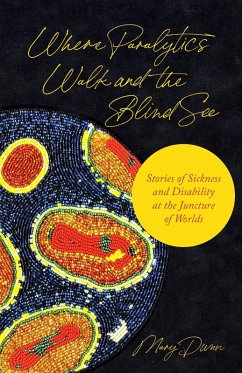An exploration of early modern accounts of sickness and disability-and what they tell us about our own approach to bodily difference
In our age of biomedicine, society often treats sickness and disability as problems in need of solution. Phenomena of embodied difference, however, have not always been seen in terms of lack and loss. Where Paralytics Walk and the Blind See explores the case of early modern Catholic Canada under French rule and shows it to be a period rich with alternative understandings of infirmity, disease, and death. Counternarratives to our contemporary assumptions, these early modern stories invite us to creatively imagine ways of living meaningfully with embodied difference today.
At the heart of Dunn's account are a range of historical sources: Jesuit stories of illness in New France, an account of Canada's first hospital, the hagiographic vita of Catherine de Saint-Augustin, and tales of miraculous healings wrought by a dead Franciscan friar. In an early modern world that subscribed to a Christian view of salvation, both sickness and disability held significance for more than the body, opening opportunities for virtue, charity, and even redemption. Dunn demonstrates that when these reflections collide with modern thinking, the effect is a certain kind of freedom to reimagine what sickness and disability might mean to us.
Reminding us that the meanings we make of embodied difference are historically conditioned, Where Paralytics Walk and the Blind See makes a forceful case for the role of history in broadening our imagination.
In our age of biomedicine, society often treats sickness and disability as problems in need of solution. Phenomena of embodied difference, however, have not always been seen in terms of lack and loss. Where Paralytics Walk and the Blind See explores the case of early modern Catholic Canada under French rule and shows it to be a period rich with alternative understandings of infirmity, disease, and death. Counternarratives to our contemporary assumptions, these early modern stories invite us to creatively imagine ways of living meaningfully with embodied difference today.
At the heart of Dunn's account are a range of historical sources: Jesuit stories of illness in New France, an account of Canada's first hospital, the hagiographic vita of Catherine de Saint-Augustin, and tales of miraculous healings wrought by a dead Franciscan friar. In an early modern world that subscribed to a Christian view of salvation, both sickness and disability held significance for more than the body, opening opportunities for virtue, charity, and even redemption. Dunn demonstrates that when these reflections collide with modern thinking, the effect is a certain kind of freedom to reimagine what sickness and disability might mean to us.
Reminding us that the meanings we make of embodied difference are historically conditioned, Where Paralytics Walk and the Blind See makes a forceful case for the role of history in broadening our imagination.
Dieser Download kann aus rechtlichen Gründen nur mit Rechnungsadresse in A, D ausgeliefert werden.


